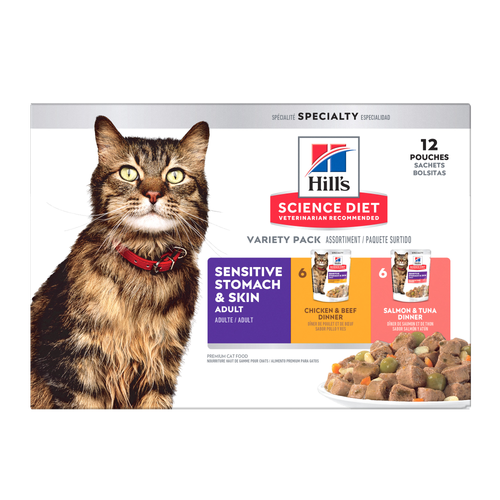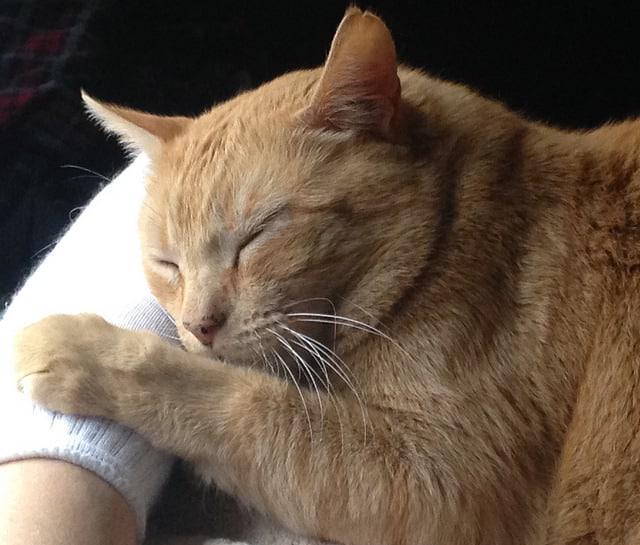
-
Find the right food for your petTake this quiz to see which food may be the best for your furry friend.Find the right food for your petTake this quiz to see which food may be the best for your furry friend.Health CategoryFeatured products
 Hill's Science Diet Adult Healthy Mobility Large Breed Chicken Meal, Barley & Brown Rice Recipe Dog Food
Hill's Science Diet Adult Healthy Mobility Large Breed Chicken Meal, Barley & Brown Rice Recipe Dog FoodAdvanced nutrition shown to support joint health and improve mobility
Shop Now Adult Light Large Breed Chicken Meal & Barley Recipe Dog Food
Adult Light Large Breed Chicken Meal & Barley Recipe Dog FoodFewer calories for less active large breed dogs
Shop Now Adult Large Breed Chicken & Barley Recipe Dog Food
Adult Large Breed Chicken & Barley Recipe Dog FoodSupports healthy joints, lean muscle, and beautiful coat for large breed dogs
Shop NowFeatured products Adult Sensitive Stomach & Skin Pouch Variety 12 Pack Cat Food, Chicken & Beef, Salmon & Tuna
Adult Sensitive Stomach & Skin Pouch Variety 12 Pack Cat Food, Chicken & Beef, Salmon & TunaCarefully made, gourmet daily nutrition. Tasty chunks with Salmon & Tuna in a decadent gravy. Supports digestive health, nourishes skin and promotes a lustrous fur.
Shop Now Adult Oral Care Chicken & Brown Rice Recipe Cat Food
Adult Oral Care Chicken & Brown Rice Recipe Cat FoodClinically proven kibble technology to reduce plaque & tartar build-up
Shop Now Adult Perfect Digestion Chicken, Barley & Whole Oats Recipe Cat Food
Adult Perfect Digestion Chicken, Barley & Whole Oats Recipe Cat FoodHill's Science Diet's breakthrough nutrition supports ultimate digestive well-being & healthy microbiome
Shop Now -
DogCat
- Cat Tips & Articles
-
Health Category
- Weight
- Skin & Food Sensitivities
- Urinary
- Digestive
- Kidney
- Dental
- Serious Illness
-
Life Stage
- Kitten Nutrition
- Adult Nutrition
Featured articles Fun Ideas for Kids and Pets This Summer
Fun Ideas for Kids and Pets This SummerOutdoor summer activities with your dog or cat can be fun for kids, too. Learn how they also teach kids responsibility & creates a bond with their pet.
Read More Cat vs. Dog: Which Is the Best Pet for Me?
Cat vs. Dog: Which Is the Best Pet for Me?Learn about important differences between dogs and cats, such as cost & space considerations. These factors can help you decide which pet is best for you.
Read More Adopting a Pet: What You Need to Know
Adopting a Pet: What You Need to KnowLearn the basics of adopting a pet, including where to begin and common questions you should ask yourself when deciding which kind of pet is best for you.
Read More -


When you're planning for your future, consider establishing a pet trust for your furry family members.
Making sure your pets are in the best hands when you can no longer care for them, whether due to an accident, diminished health or old age, will give you much-needed comfort. Including your pets in wills is no longer seen as something done by only eccentric animal lovers. In fact, the practice has skyrocketed since the early 2000s, and not just by aging pet parents and grandparents. More and more young people are taking measures to provide long-term care for their fur babies, too.
It's not enough to include your pet in your will, which typically can only be enacted in the event of your death, whereas a trust can provide care under a number of different circumstances. If you have a long-term illness, for example, and cannot take care of your cat for an extended period of time, the guardian appointed in your trust will take over pet care responsibilities, and the trust provides him or her with the funds needed to do so.
In addition to whom your pets will live with, a pet trust should stipulate the exact details for how the money you leave for their care should be spent. "The trust will also specify how much the caregiver gets paid, how the trustee will monitor the caregiver's services, and how the caregiver will document expenditures for reimbursement," explains Money. "Since the trust will own your pet, if the caretaker isn't meeting your standards, the trustee can assign care elsewhere." Including such details in your estate planning ensures your pet has a happy life and gives you peace of mind.
But just how do you go about setting up a pet trust?

Guardian
Before drawing up a trust, speak openly with the person you want to take care of your pet to be sure he or she is up for the job. Ideally, your pet's guardian is someone with whom your furry companion is familiar and comfortable. Another factor to include in your decision-making process is the age of the guardian and of your pet. Some animals, such as birds, can outlive their owners by many years! It's also a good idea to include a secondary caregiver, in the event the first guardian is unable to fulfill the duties.


Tasty Tips
Young pets may need several visits in their first year for vaccinations. Adult pets generally benefit from annual check-ups, while senior or special-needs pets might require more frequent visits.
Funds
In a pet trust, you designate a specific amount to go toward taking care of your pet. You'll need to determine this cost based on their standard of living, including such expenses as food, treats, toys, veterinary and medical bills including their end-of-life care (burial versus cremation, for example). Generally speaking, the funds will not greatly exceed a reasonable amount for regular pet care (unless you're like mogul Leona Helmsley, who upon her death in 2007 famously left $12 million to care for her beloved pooch, in which case, you'll have more to explain). If there's a chance the funds are not spent in full during your furry pal's lifetime, appoint a beneficiary for any excess funds.
Keep in mind, too, that in order for the trust to be binding, you should consult an attorney for legal advice. You also may be able to claim your pet as a life insurance beneficiary, which your agent can explain to you. If you're already thinking about setting up a will or trust for your possessions, be sure to ask your advisor about a pet trust at this time, too. Likely, they can add in provisions to your current documentation to ensure the best care for your pet. You can dictate the terms, but they might be able to provide advice on how to best go about it, regarding your particular case.
It's not always easy or comfortable to plan for a time when you're not around to care for your furry friend, but establishing a pet trust and designating a loved one as a pet guardian assures that they will be in good hands.


Christine O'Brien is a writer, mom, and long-time cat parent whose two Russian Blues rule the house. Her work also appears in Care.com, What to Expect, and Fit Pregnancy, where she writes about pets, pregnancy, and family life. Find and follow her on Instagram and Twitter @brovelliobrien.
Related products

Supports healthy joints, lean muscle, and beautiful coat for large breed dogs

Fewer calories for less active large breed dogs

Fewer calories for less active dogs

Advanced nutrition shown to support joint health and improve mobility
Related articles

Open admission animal shelters help end animal abandonment, homelessness, and unnecessary euthanasia. Learn more about the shelters and how you can help.

Learn the basics of adopting a pet, including where to begin and common questions you should ask yourself when deciding which kind of pet is best for you.

Outdoor summer activities with your dog or cat can be fun for kids, too. Learn how they also teach kids responsibility & creates a bond with their pet.

Learn about important differences between dogs and cats, such as cost & space considerations. These factors can help you decide which pet is best for you.

Put your pet on a diet without them knowing
Our low calorie formula helps you control your pet's weight. It's packed with high-quality protein for building lean muscles, and made with purposeful ingredients for a flavourful, nutritious meal. Clinically proven antioxidants, Vitamin C+E, help promote a healthy immune system.
Put your pet on a diet without them knowing
Our low calorie formula helps you control your pet's weight. It's packed with high-quality protein for building lean muscles, and made with purposeful ingredients for a flavourful, nutritious meal. Clinically proven antioxidants, Vitamin C+E, help promote a healthy immune system.

